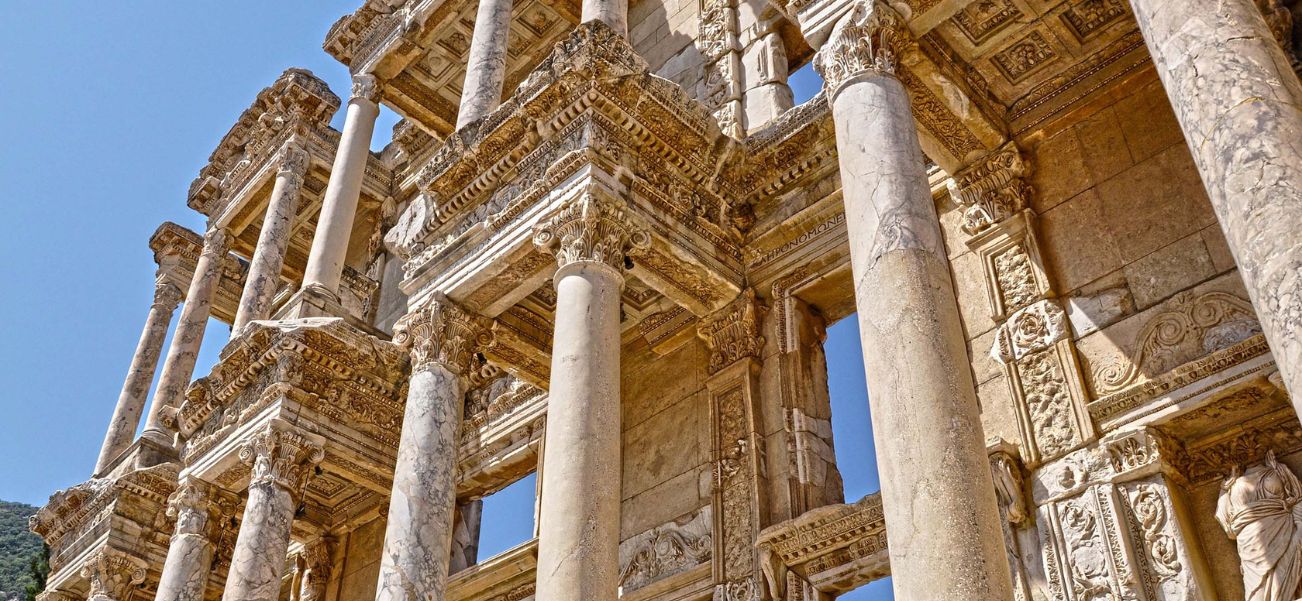
Ephesus Guide: A Journey Through the Ancient City That Shaped History
Nestled near the sparkling Aegean coast of modern-day Turkey, Ephesus stands as one of the most magnificent and well-preserved ancient cities in the world. Once a thriving metropolis of the Roman Empire and a pivotal center of early Christianity, Ephesus offers an unparalleled glimpse into the past. Walking its marble streets feels like stepping into a living history book—where philosophers debated, gladiators fought, and apostles preached.
In this journey through Ephesus, we’ll explore its rise to glory, its legendary landmarks, and the forces that led to its decline. Whether you're a history enthusiast, a spiritual seeker, or a traveler dreaming of ancient wonders, Ephesus promises an unforgettable adventure.
DISCOVER EPHESUS ANCIENT CITY!
Listen to the audio book about "Ephesus":
The Pic History Of Turkey Through The Ages
The House of Virgin Mary: A Sacred Destination in Ephesus
The Rise of Ephesus: From Greek Colony to Roman Powerhouse
A City Born from Myth and Legend

According to Greek mythology, Ephesus was founded by the Amazons, a tribe of warrior women, and later settled by Ionian Greeks around the 10th century BCE. Its strategic location near the Cayster River made it a vital port city, connecting trade routes between the East and West.
The Golden Age Under Roman Rule

By the 1st century BCE, Ephesus had become the capital of Rome’s Asian province and one of the largest cities in the Mediterranean, with a population exceeding 250,000. Wealth poured in from trade, particularly in silk, spices, and slaves, funding grand architectural projects that still awe visitors today.
Hagia Sophia: A Timeless Masterpiece in Istanbul
Exploring Ephesus: Must-See Landmarks of the Ancient City
1. The Library of Celsus – A Monument to Knowledge

One of Ephesus’ most iconic structures, the Library of Celsus, was built in 117 CE as a mausoleum and library for the Roman senator Tiberius Julius Celsus. Its beautifully restored façade, adorned with statues representing wisdom, virtue, and knowledge, makes it a photographer’s dream. At its peak, the library held over 12,000 scrolls, rivaling the great Library of Alexandria.
2. The Great Theatre – Where Gladiators Fought and Paul Preached

With a staggering capacity of 25,000 spectators, the Great Theatre of Ephesus was one of the largest in the ancient world. Originally used for dramas and political assemblies, it later hosted brutal gladiatorial combats. This theater also played a crucial role in early Christianity—it was here that a riot erupted against St. Paul, as recorded in the "Acts of the Apostles (19:23-41)".
A Deep Dive into the Ancient Civilizations of Turkey
3. The Temple of Artemis – One of the Seven Wonders

Though only a single column remains today, the Temple of Artemis was once among the most magnificent structures of antiquity. Dedicated to the Greek goddess of the hunt, it was four times larger than the Parthenon. Pilgrims from across the ancient world visited this sacred site, and its destruction (first by arson in 356 BCE, then by invading Goths) marked the end of an era.
4. The Terrace Houses – Luxurious Roman Villas

Often called "the houses of the rich," these well-preserved villas showcase the lavish lifestyles of Ephesus’ elite. Intricate mosaics, frescoes, and even heated floors reveal the sophistication of Roman engineering and artistry. Archaeologists continue to uncover fascinating details about daily life in these homes.
5. Curetes Street – The Heartbeat of Ephesus

This grand marble-paved avenue was lined with shops, statues, and monuments, serving as the city’s main thoroughfare. Walking down Curetes Street today, visitors can still see ancient advertisements, like a footprint pointing toward a brothel and a carving of a woman’s face believed to represent the famous courtesan "Phryne".
The History of Bodrum Castle: A Timeless Fortress by the Aegean
Ephesus and Early Christianity: A Sacred Legacy
St. Paul’s Mission in Ephesus
Ephesus was a key location in the spread of Christianity. St. Paul lived here for over two years, preaching in synagogues and public spaces. His teachings angered local silversmiths, who profited from selling idols of Artemis, leading to the infamous riot in the Great Theatre.
The Virgin Mary's House & The Basilica of St. John

Just outside Ephesus lies the Basilica of St. John, built over the believed burial site of John the Apostle. Nearby, the "House of the Virgin Mary" is a pilgrimage site where many Christians believe Mary spent her final years. Pope Paul VI and Pope John Paul II both visited, affirming its spiritual significance.
The Fall of Ephesus: Why Was This Great City Abandoned?

Despite its grandeur, Ephesus began to decline due to a combination of factors:
- Silting of the Harbor The Cayster River’s silt buildup turned the bay into a swamp, crippling trade.
- Earthquakes Repeated quakes destroyed key structures, and rebuilding became too costly.
- Changing Trade Routes As Constantinople (modern Istanbul) rose in importance, Ephesus faded into obscurity.
By the Middle Ages, Ephesus was largely abandoned, its ruins slowly buried under layers of earth—until archaeologists began uncovering its secrets in the 19th century.
Visiting Ephesus Today: Tips for Travelers

Best Time to Visit: Spring (April-May) and autumn (September-October) offer pleasant weather and fewer crowds.
Must-Do Experiences:
- Hire a guide to uncover hidden stories behind the ruins.
- Visit early in the morning or late afternoon for the best lighting and fewer tourists.
- Combine your trip with nearby attractions like Şirince Village or the Ephesus Museum.
Practical Tips: Wear comfortable shoes (the marble streets can be slippery!) and bring water—shade is limited.
Conclusion: Why Ephesus Still Captivates the World

Ephesus is more than just ruins—it’s a living testament to human ingenuity, faith, and resilience. From the grandeur of the Library of Celsus to the spiritual echoes of St. Paul’s sermons, every corner of this ancient city tells a story.
Whether you’re marveling at its archaeological wonders or reflecting on its role in shaping history, Ephesus offers a journey unlike any other. Have you visited Ephesus, or is it on your travel bucket list? Share your thoughts in the comments!
Enjoy your trip to Ephesus!














